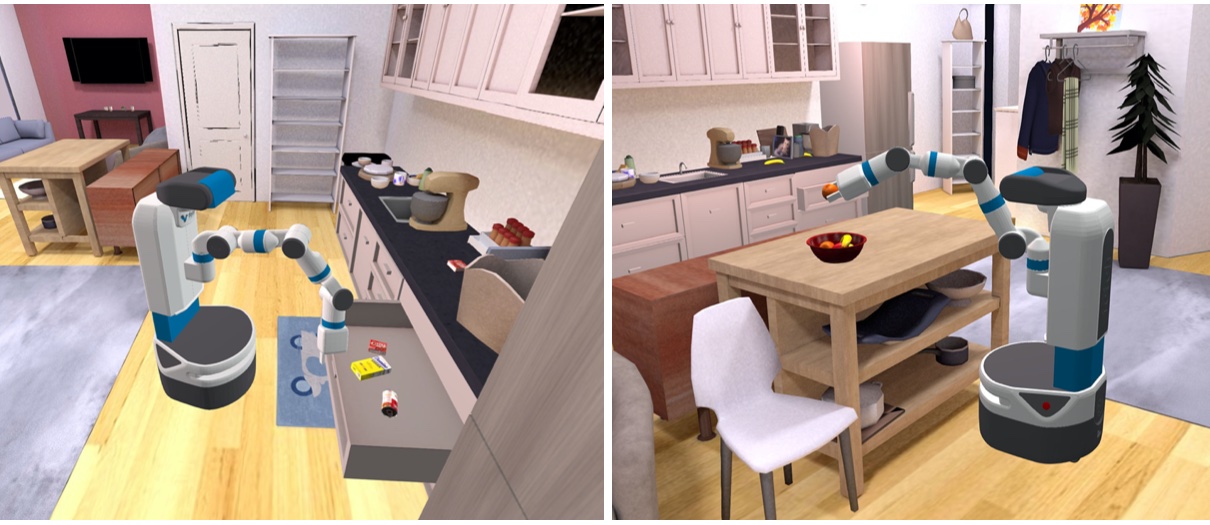In an era where artificial intelligence (AI) is poised to revolutionize various industries, the methodologies of training AI systems are evolving rapidly. Facebook and Matterport have teamed up to pave the way for more realistic virtual training environments, enhancing how robots learn to navigate complex spaces. This blog explores the implications of their collaboration, the advancements in virtual training technologies, and how these innovations could redefine the landscape of AI learning.
Transforming AI Training with Virtual Reality
When it comes to training robots for real-world tasks, the traditional approach requires either extensive real-time experience or advanced virtual simulations. Typically, AI systems have been trained in idealized environments often reminiscent of video games rather than authentic life scenarios. As a response to this challenge, Facebook and Matterport are collaborating to create thousands of virtual interactive digital twins of real-world spaces, effectively providing richer training grounds for next-generation AI.
A Dive into Habitat 2.0 and ReplicaCAD
On Facebook’s front, the introduction of Habitat 2.0 signifies a monumental step forward in AI training capabilities. Previously, AIs navigated simplistic 3D environments with minimal physical interaction. However, with Habitat 2.0, researchers can simulate a more dynamic interaction with their surroundings. For instance, if a robot is instructed to pick up a fork and place it in a sink, it can now engage physically with both objects, providing a more sophisticated and realistic training experience.
The backend of this innovation is the newly created ReplicaCAD dataset, which redefines the old paradigms of training datasets. Instead of merely relying on polygons, ReplicaCAD incorporates comprehensive 3D models based on rigorous scans, enhancing the AI’s ability to learn from its environment effectively. This approach boosts computational intensity but allows for more real-world simulation, looking at physical interactions as an integral part of AI training.
Elevation Through Matterport’s 3D Imaging
Matterport’s contribution to this partnership is equally notable. With an impressive range of 3D-scanned environments encompassing everything from homes to hospitals, Matterport is bringing its wealth of data to the forefront. The company’s CEO, RJ Pittman, emphasized that their extensive dataset, known as HM3D, is aimed at creating a diverse and rich environment for AI models to thrive. This diversity ensures that learning algorithms are not limited to a narrow set of data, bolstering their ability to generalize across real-world scenarios.
Pittman envisions a future where this data can be accessed via an API, allowing developers to construct specialized environments tailored to specific use cases, such as robotic applications in hospitality settings. This versatility highlights the extent to which AI models can evolve, leveraging real-world datasets for practical implementations.
The Significance of Simulation Speed
One of the standout features of Habitat 2.0 is its operating speed, which claims to be 50-100 times faster than its nearest competitors. This significant advantage allows researchers to expedite the training process, effectively yielding more learning opportunities within a shorter timeframe. With higher speed and enhanced interaction capabilities, AI training can now become more efficient, driving faster advancements in robotic functionalities.
Conclusion: A New Era in AI Development
As the collaboration between Facebook and Matterport unfolds, it is clear that the realm of AI training is entering a new dimension. By harnessing advanced data collection techniques and offering realistic, interactive environments, these companies are laying the groundwork for a revolution in how machines learn about and navigate our world. The implications of this partnership extend far beyond robotics; they pave the way for smarter, more responsive systems equipped to adapt to the complexities of everyday life.
At fxis.ai, we believe that such advancements are crucial for the future of AI, as they enable more comprehensive and effective solutions. Our team is continually exploring new methodologies to push the envelope in artificial intelligence, ensuring that our clients benefit from the latest technological innovations. For more insights, updates, or to collaborate on AI development projects, stay connected with fxis.ai.

